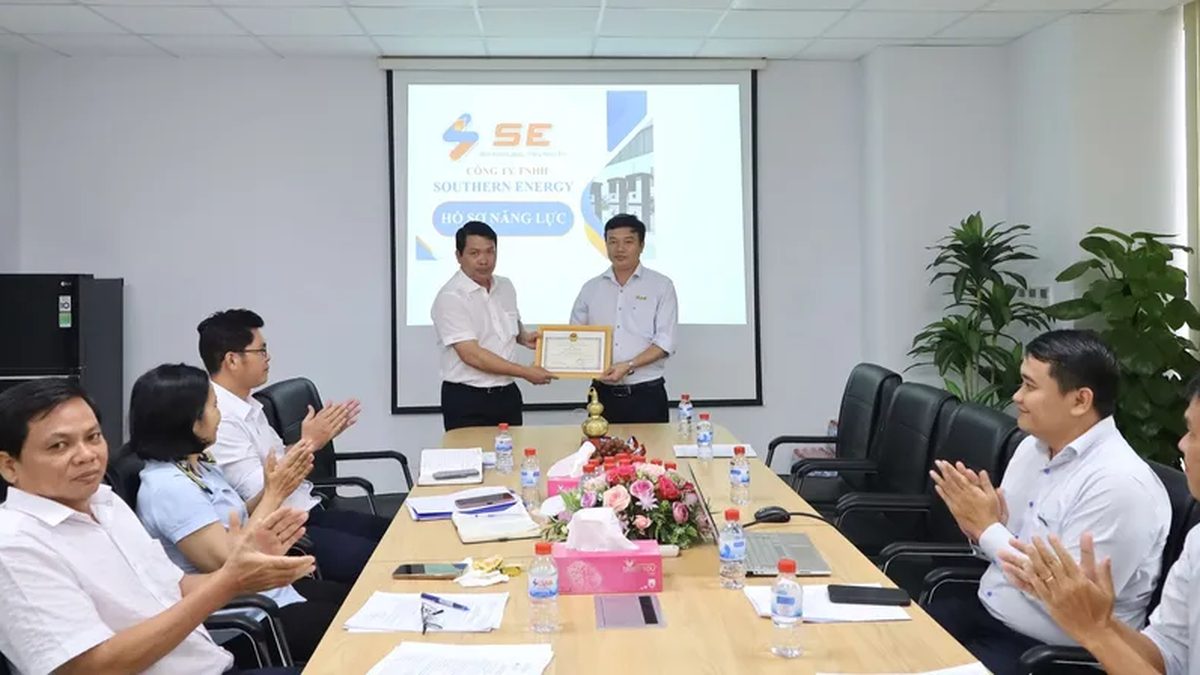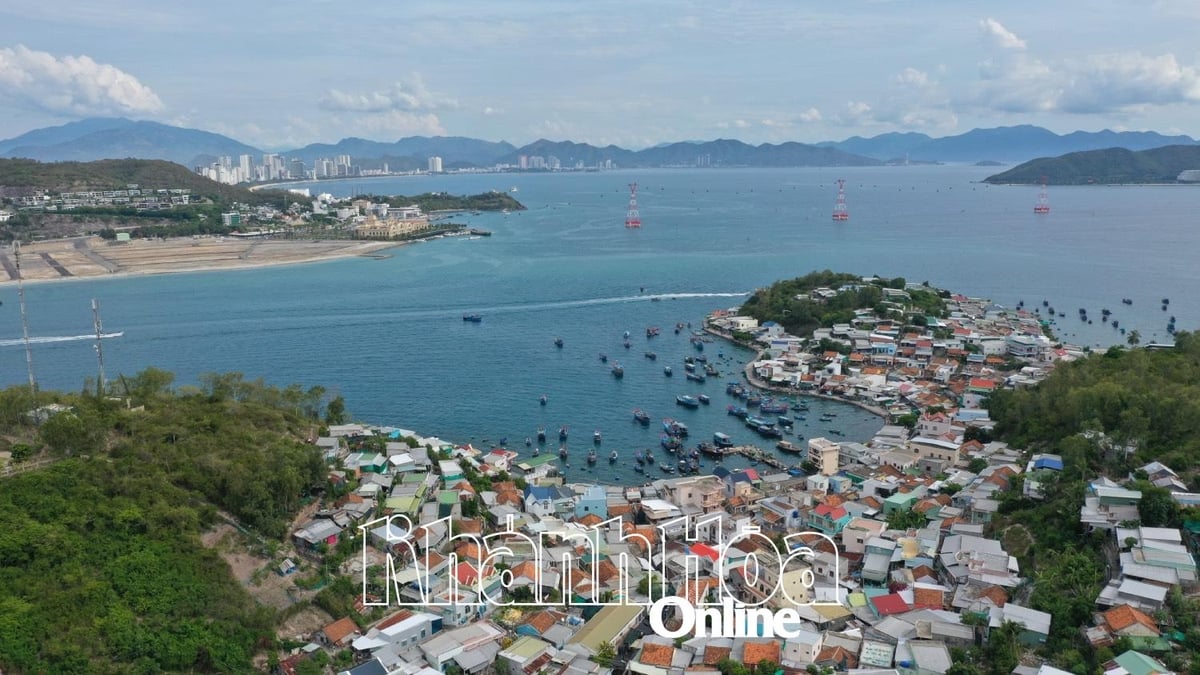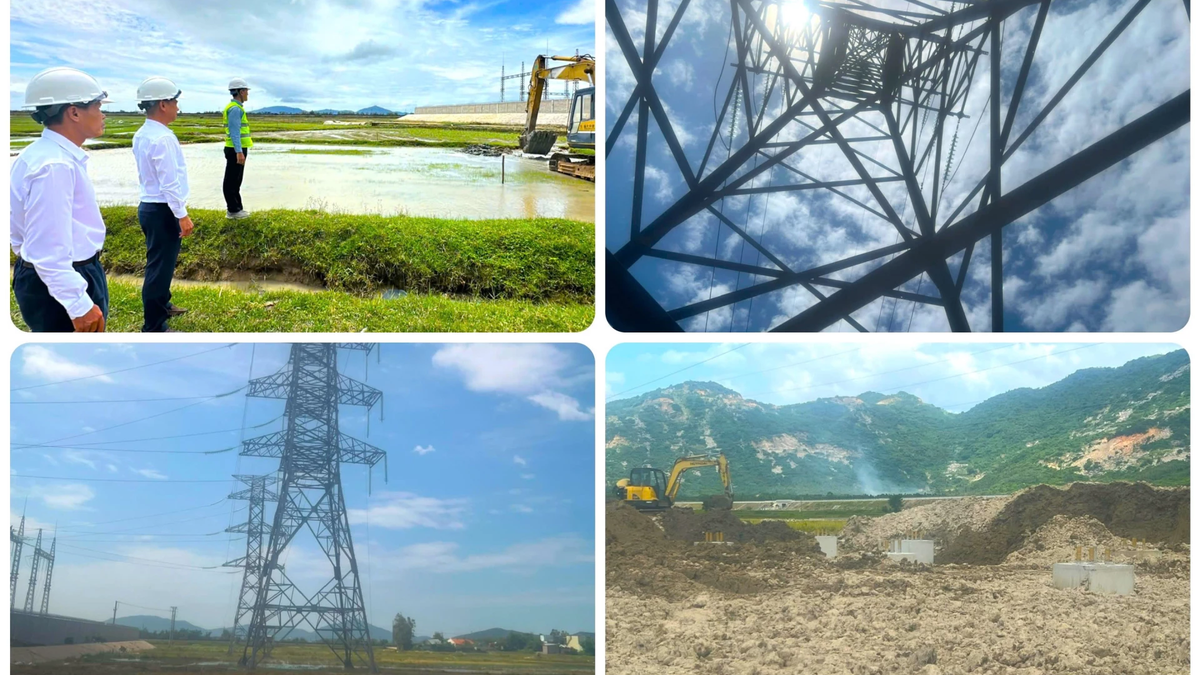Faced with new opportunities, experts have looked at the current situation of this economic sector and proposed many mechanisms and policies to create a launching pad for private enterprises to develop more strongly in the coming time.
Associate Professor, Dr. Tran Dinh Thien, Member of the Prime Minister 's Policy Advisory Council:
Need new policies, new thinking

We have been too cautious with the private economy. It took 40 years since the Doi Moi process for this sector to be officially recognized as one of the most important driving forces of the economy. In fact, there have been many resolutions on private economic development such as Resolution No. 09-NQ/TW (2011) and Resolution No. 10-NQ/TW (2017). However, private enterprises still face many barriers in accessing important resources such as credit, land, resources and especially high-quality human resources in the fields of technology, engineering and finance.
In general, the private sector is still operating in an environment that is not truly equal compared to the foreign-invested sector and state-owned enterprises. What private enterprises want is not incentives or privileges, but fair treatment in accessing policies and markets. Therefore, one of the breakthroughs that the business community expects from Resolution No. 68-NQ/TW is to perfect the legal system, remove barriers to market entry, and at the same time ensure a transparent, open, clear, consistent, long-term stable, easy-to-implement and low-cost business environment.
To strongly develop the private economy, a new policy system and a new mindset are needed: restructuring the institutional foundation, removing old barriers, and clearing bottlenecks in infrastructure and human resources. In addition, private enterprises themselves must also transform if they want to compete on a regional and global scale. Designing a system of mechanisms and policies to encourage innovation is necessary, of which building a fair and transparent competitive environment is especially important.
Prof. Dr. Nguyen Mai, Chairman of Foreign Investment Association:
Private enterprises are very flexible and innovative.

Private enterprises, especially small and medium-sized enterprises, still face many difficulties due to high business costs and lack of access to land and capital. However, this sector has shown the ability to adapt quickly, flexibly and creatively.
In order for the private economy to develop substantially and sustainably, it is necessary to unify awareness, ideology and action in the process of implementing policies and strategies to develop this sector. The focus is on creating a favorable, transparent and stable investment and business environment, creating trust and motivation for businesses.
In addition, there should be policies to support private enterprises in innovation, technology modernization, human resource development and labor productivity improvement. At the same time, it is necessary to improve the capacity and effectiveness of state management; innovate the content and methods of Party leadership over the private economy; strengthen the role of the Vietnam Fatherland Front together with socio- political organizations and professional organizations in monitoring, supporting and accompanying private enterprises.
Mr. Nguyen Kim Hung, Vice President of Vietnam Association of Small and Medium Enterprises, Chairman of the Board of Directors of Kim Nam Group:
Creating institutional corridors for small and medium enterprises to break through

The birth of Resolution No. 68-NQ/TW is like a breath of fresh air, bringing with it the expectation of an institutional breakthrough. With that foundation, small and medium enterprises have the opportunity to enhance professionalism, operational efficiency, improve product and service quality, and at the same time bring more suitable prices to consumers.
However, in addition to issuing institutions, I think it is necessary to further promote communication work. Not only stopping at propagating the content of the Resolution, but also widely disseminating successful models and experiences from the practice of small and medium enterprises, helping the business community clearly understand the path to join the private economic "highway" that needs to be taken.
In addition to Resolution No. 68-NQ/TW, it is possible to consider issuing a specialized resolution or specifying policies to support the development of small and medium enterprises. If the "highway" has been opened, it is necessary to create conditions for the majority of enterprises to participate, not only for large corporations but also for the entire small and medium enterprise community, ensuring that they are protected, encouraged and empowered to develop sustainably.
In particular, it is necessary to soon concretize with appropriate policies and institutions to convert about 5 million individual business households currently into organized business models with competitive capacity and long-term development potential.
Mr. Nguyen Van Phuc, former Deputy Chairman of the Economic Committee of the National Assembly:
Reduce conditional business lines

Resolution No. 68-NQ/TW has created a boost, motivation and inspiration for the business community. We can clearly see this through the fact that many domestic enterprises have boldly proposed to invest in large projects such as the North-South high-speed railway. Decades ago, I also participated in drafting laws to promote the development of the private economy. When amending the Constitution in 2013, we boldly proposed to include in the Constitution the provision: "Everyone has the right to freely conduct business in industries that are not prohibited by law."
The Party's viewpoint on not criminalizing economic and civil relations has been mentioned for a long time. Whether or not to criminalize depends on the provisions of the Penal Code. For example, borrowing and late debt repayment are civil and economic transactions and are clearly regulated by law. Only when the behavior goes beyond the civil nature and violates legal provisions will it be subject to criminal prosecution.
In my opinion, it is necessary to study to eliminate some crimes in the economic field. At the same time, to limit the risk of criminalization, it is necessary to reduce the number of conditional business lines. Because just abolishing one conditional business line can significantly reduce the types of licenses and cumbersome administrative procedures for businesses.
Source: https://hanoimoi.vn/xay-dung-moi-truong-canh-tranh-cong-bang-minh-bach-710610.html


























![[Photo] National Assembly Chairman attends the seminar "Building and operating an international financial center and recommendations for Vietnam"](https://vphoto.vietnam.vn/thumb/1200x675/vietnam/resource/IMAGE/2025/7/28/76393436936e457db31ec84433289f72)








































































Comment (0)